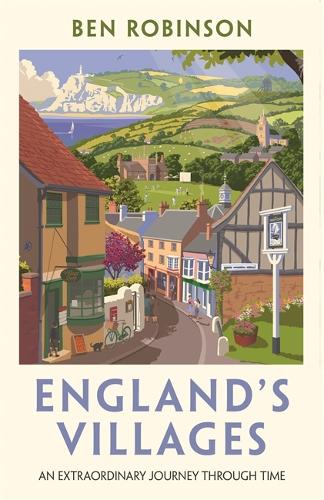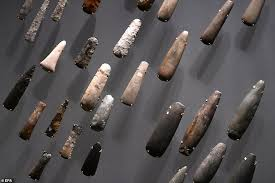Day Three, For Dave Mugridge. Roncesvalles to Burguete.

Being a student suited Dave. We were all lonely, lazy and languid then. He inhabited benches, wrapped in a large grey coat. Looking at photographs now I see how young and blooming he was. The light shone in his mane of chestnut hair and the vivid blue eyes were fringed with long lashes. At the time, he seemed older than us, like a man who had Lived. Perhaps it was that his skin was slightly pock-marked from a brush with acne and that gave him a wolfish, battle-scarred look. We discussed literature and his sallies with girls over chocolate Hobnobs in those cold student rooms.
One day in his final year he paid me a visit in my room. The mist was hanging outside the Victorian stone windowsills, turning the afternoon violet. He was serious and awkward. In a low voice he told me he was ‘HIV Positive’.
‘Ah-ha?’ I said neutrally. I thought it was important to show that one of his good friends wasn’t alarmed or disgusted.
He looked at me bewildered. ‘Do you know what ‘HIV Positive’ means?’
Some fluke, some twitching in the DNA, gave Dave haemophilia back there in the embryo. Neither of his parents was a haemophiliac. When he was in his early teens, Dave had to have a blood transfusion. That was in the 1980s, when Mrs Thatcher was declaring, ‘There’s no such thing as society.’ Before Dave had ever kissed a girl, he was infected with Aids. Someone well-meaning gave him life and death.
After we graduated, Dave shared a rented house with a group of friends from university. They were turning into young professionals. He was not. He had enough money to live on and too broad a horizon. This group of student friends, spread between three or four rented houses, hardened into one of those adult gangs – Were they a Nineties phenomenon? – professionals who lived together, spent their Friday and Saturday nights together, and eventually married each other.
Between the members of his gang Dave moved like the invisible man, unable to drink as his liver weakened, entertaining them with stories of his own foolishness. We all heard about the latest woman to be the object of his love and desire. He would pursue to the point of intimacy and then flee in terror. Once a girl clung on and he couldn’t flee. But as the relationship developed he started to wash his hands obsessively, taking on a guilt and dirt that didn’t belong to him. ‘You can still use them for fantasies,’ I suggested. He laughed, shocked.
Dave didn’t work. While he still had compensation money he couldn’t take it seriously. He tried once. He bought a suit and worked in the Government Statistics Office. His boss was a nice, earnest man who had high hopes of Dave. But Dave had his own room and was thus able to put his head down on the desk and go to sleep in the afternoons. A week came when his boss wanted him to go to Wales to tell the civil servants there what the Stats Office was up to. Dave took the train and faced the row of grey suits. He had nothing to say.
Towards the end of our twenties, Dave’s compensation money began to run out. And it was this that forced him to use his talents. He taught English in the prestigious Catholic comprehensive that was educating Blair’s boys. But the virus started to kick in. A boy shouted at him in the corridor – ‘Aids man!’
Dave looked in the mirror and saw how thin his face was. But research had produced a miracle drug that kept men living years longer: it gave him cancer of the liver. He didn’t know this until April. He kept on going into school, facing classes. In the evenings he came home and threw his clothes on the floor in heaps, too tired to sort them out.
After he was taken into hospital his friend Adam walked into his room and found piles of jeans and good quality jerseys, full of moths.
******
‘It is a very kind act to take a friend’s hand and show him or her the pleasure you have in something,’ says Natalie Goldberg, the writers’ guru. This was Dave’s gift. His enthusiasms – about certain musicians, certain writers – made him almost frightened. ‘Will I talk about this?’ he hesitated. ‘Let me know what you make of him. I think – I hope you’ll like him.’
We discussed the then-popular TV adaptation of Pride & Prejudice, for an hour. ‘Do you think,’ I asked, always earnest, always wanting to know what happens after the end of the story, after the chicken has crossed the road, ‘Do you think they got on after they were married?’
‘Like rabbits.’
He was my personal tutor in culture, introducing me to the Shuttleworths and Colonel Blimp, and Queen (Mama, I don’t want to die. Some times I wish that I had never been born), and Star Wars. That was a formal event. I took a day off work and went round to his shared house in Kilburn. We sat in while the sun shone outside, munching houmous, pitta and iceberg lettuce, imbibing Luke Skywalker. Now and again he would freeze the video to check I was following, or draw out the hidden meanings. Then we walked on the mown grass of the park, near the railway line. Meetings always ended more subdued than they began, with him starting to talk about his troubles – love life, work, health – and then hating us both for the serious turn of the conversation.
I confess those depressed endings scared me off. There was a year when we lost touch. I am walking today partly for that.
Then April, the first spring of the new millennium, Adam appeared in the front garden. He brought a pale blue letter from Dave.
I visited him twice, but after that he didn’t want to see me. There were too many crowding for his attention, people who mattered more, and he tired easily.
He quite soon made the decision to give up the chemo. In his hospital bed he converted to Evangelical Christianity. His sister, who was already a convert, introduced him to a local evangelical pastor. This bible-based faith was something he had been putting off for years. In student days, he would get inveigled into attending evangelical dinners and then run away afterwards, traumatised. ‘Why does it bother you so much?’ I would ask him. ‘Just put it out of your head.’ ‘Yes,’ he would say, unconvinced.
It was awkward to get news of him in hospital. I didn’t like bothering the nurses and feared discussing his worsening condition with his Dad.
In the end there were letters: tiny skynotes, addressed in his own increasingly spidery hand. I felt as if I were receiving words from beyond the grave, so far apart were we in prospects and daily experience. I didn’t know what to say, twiddled my ink pen sitting in cafes, etching some kind of empathy onto the void of white A4 sheets or just nattering on about my day. Then back through the British postal service came these miracles. I treasured those letters as if they were love letters, knowing that one of them must be the last. And yet there was nothing intense written on either side – we had no great words to say – just a couple of friends continuing until the whistle blew.
Thank-you loads for your letter which reached me today. You continue to lead an interesting life but I hope it is not getting in the way of your writing… I am full of regrets that I haven’t achieved (written) more but I am currently collating everything… ‘Blasted’ is a good word to describe this disease. I feel very angry and frustrated at the loss which will take place when I die. Still I have nothing to be too ashamed of or regret I think… I am moving towards a sense that it is all God’s will really – hard to accept – but ultimately true...
Later, when the morphine doses were raised, the writing shrank to a minute size and he went over his letter underlining certain words in a different colour: I’m glad you write, it gives me simple plans to complete. I sometimes feel so sad but I’m sure I’m doing the right thing here. It’s hard to wait for the end, equally its scary to think about it – meanwhile when I put strategies into place to deal with these feelings hallucinations get in the way!…. Woozy, Dave. Woozy he may have been but the post-code was always accurate.
The last card is John Constable’s Hay Wain and it’s faintly baffling.
Dear Katy – he alternated between the ‘ie’ and the ‘y’ spelling – This card is taken from a postcard book bought from National Gallery by Claire for me – and it’s about the only one I could bear to part with because they are all so beautiful – wonderful colour reproductions of Renaissance stuff…. My story is not getting written. I seem to be very busy with guests…
With returned good health have come all manner of political difficulties dealing with family and friends – it seems tough on me but politics never goes away, it seems. Now the crisis seems to have passed no one, including me, quite knows what to do with me. I have a deep sense of frustration at still being alive, to tell you the truth, but perhaps God still has plans for me down here. I found myself evangelising a nurse today and thought ‘Lord, please make that my last one!’
love Dave
The grip with reality was loosening and yet I wonder if, in amongst the veins and the lymph glands brimming with morphine and toxins, you knew that that was your last card. It is the only one you signed with love.
******
The pilgrims had marched out of Roncesvalles before dawn, leaving the monastery emptier than an empty building, scoured and sterilised, all atmosphere washed away by the nightly flow of guests. The massive interconnected cloisters stood stony silent among their groomed lawns. As it was a special holiday and there were many visitors, the museum was shut. In a telephone box near the restaurant three Filipino women were trying to sleep. We were disappointed, Sandra and I, that there wasn’t more of a gung-ho saint-thumping Catholic ambience, something to give us instant spirituality. But then maybe the point of a pilgrimage is to start from a state of godlessness and move towards God…








 On the railway platform at Bayonne we were all waiting in our different ways for the train that would take us to St. Jean Pied de Port (‘St John at the foot of the pass’) and the start of the pilgrimage route. One man was smoking a pipe and his wife, a cigarette. They wore chic red rain gear. I wondered how they would make it, with smokers’ lungs, over the Port de Cize, the mountain pass that had brought the Romans and Napoleon into Spain, and now pilgrims on the Camino de Santiago.
On the railway platform at Bayonne we were all waiting in our different ways for the train that would take us to St. Jean Pied de Port (‘St John at the foot of the pass’) and the start of the pilgrimage route. One man was smoking a pipe and his wife, a cigarette. They wore chic red rain gear. I wondered how they would make it, with smokers’ lungs, over the Port de Cize, the mountain pass that had brought the Romans and Napoleon into Spain, and now pilgrims on the Camino de Santiago.